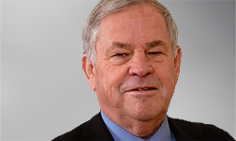I’M afraid those of us aged 60+ years constitute a pathetic 12.3% (901 million) of the world population — not enough to fire up a revolution, although I suppose we could start a new political party.
But – and here’s hope – by 2050 we will account for 21.5% of the global population, and we will have broken through the 2 billion ceiling.
What will it be like, not just for us, but for older folk all over the world? After all, two-thirds of them will be in what are now the less economically advanced nations.
The goal of HelpAge International, a non-government organisation set up by five groups from Canada, Colombia, Kenya, India and the UK in 1983, is to assist older people “claim their rights, challenge discrimination and overcome poverty, so that they can lead dignified, secure, active and healthy lives”.
HelpAge has just published its Global AgeWatch Index for 2015 , which ranks 96 countries according to the social and economic wellbeing of older people in relation to income security, health, personal capability and an enabling environment.
Data were missing from about 90 countries on dimensions such as poverty, meaning that older people with serious limitations were less likely to find their way into the global statistics.
In many African countries, for example, older people are not even a statistic. In the media release about the report HelpAge chief executive Toby Porter says “that millions of older people are invisible, living their lives in countries where information on the quality of older age is missing from international data sets”.
Porter notes that “we know more about the needs of older people in Norway and Luxembourg, two of the richest countries in the world, than we do about those in Liberia and Burundi, two of the poorest”.
But you don’t need to live in Africa to be low down the list. While Switzerland is the best place to be old, Greece, Venezuela and Turkey rank alongside sub-Saharan African and Asian countries. Afghanistan comes last. Austerity and war do not a good old age make.
And, in case you are wondering, Australia ranks 17 among the 96 nations.
One reason why this report is important is that later this month the international community will be signing up to a new set of global goals in New York.
Called the Sustainable Development Goals, they will build on what has been achieved by the Millennium Development Goals that concentrated on reducing poverty, improving maternal and child mortality, and providing universal education. A surprising number of those goals were achieved.
But now the horizon is wider and includes matters to do with sustainability such as concerns for the physical environment.
With the ageing of the global community the question becomes: how can we sustain human flourishing in a world where the proportion of older people is higher? Besides providing data, HelpAge is agitating, along with myriad other interest groups, for its concerns to be reflected in the 17 goals and 169 targets adopted at the United Nations summit at the end of this month.
Being able to measure progress adds to the persuasiveness of their case for inclusion in the goals.
When you think about it, we have witnessed a remarkable change from 15 years ago when the Millennium Development Goals, including those for health gain, were dominated by problems at the front end of life.
Now, not only will we need to redeploy our health weaponry but, if we are to do the job of supporting our older citizens, we will require a new way of thinking. Others would term this a shift in cultural attitudes.
Dr Karen Hitchcock, a Melbourne physician, in her splendid Quarterly Essay article “Dear life: On caring for the elderly” explores in stark clinical detail the deficiencies in our current care for older people.
Her article reveals how much we have to gain from a new way of thinking. Hitchcock writes that “the elderly, the frail are our society. They are our parents and grandparents, our carers and neighbours, and they are every one of us in the not-too-distant future … They are not a growing cost to be managed or a burden to be shifted or a horror to be hidden away, but people whose needs require us to change”.
The whole of society will benefit from that change when we can freely express the most humane values that we espouse as doctors in the way we care for older people.
Professor Stephen Leeder is emeritus professor at the Menzies Centre for Health Policy at the University of Sydney. Find him on Twitter: @stephenleeder
Jane McCredie is on leave.

 more_vert
more_vert
Is this interest because you are over 60? Since when do some of these nations take any notice of UN programs, directives, or statements of goals? They certainly haven’t taken any notice of the Universal Declaration of Human Rights. Neither have two states in Australia with their legislation forcing doctors to refer for late term abortion and prosecuting those who don’t, despite its free availablity. Even liberal Canada views the Tasmain legislation on late term abortion as one of the best examples of bad legislation, in their teaching of law students.
Ho Hum! !
How dreadful
‘Austerity and war do not a good old age make.’
doesn’t make crash hot childhood either !!
What is age?
I’m fit and healthy with only minor physical issues affecting me at almost 72. I’ve just bought a new high performance, manual geared, sports car, renewed my driver’s licence for 10 years, and acquired a new girlfriend after 6 years of widowerhood. (And I don’t need glasses for driving.)
Hear Hear.!! Chronoogical age is a 20th century concept. It is 2015 for Pete’s sake..